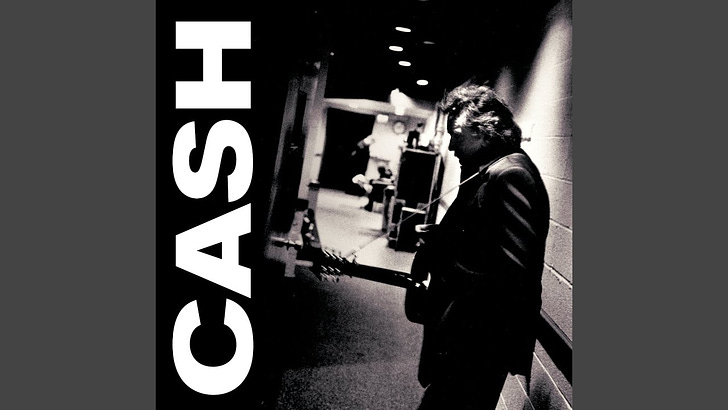

Discover more from Depresh Mode
The Bipolar General
This week, we’re rebroadcasting (repodcasting?) an episode from earlier in the year with General Gregg Martin (ret.) about his experiences as a two-star general and important military figure who also dealt with bipolar disorder. In case you need it, it’s another reminder that mental illness doesn’t care how distinguished or important you are, it can happen to anyone.
During a decades long career in the United States Army, Gregg Martin just kept on succeeding. Star cadet at West Point, getting promoted up to two-start General, earning PhD degrees along the way, and receiving glowing evaluations all the while for his boundless energy and enthusiasm. He now knows that he was operating under a condition called hyperthymia, being in a constant state of near mania. After a deployment to Iraq, Gregg’s mania kicked into high gear and was accompanied by bouts of deep depression. It would take many years of further promotion and misdiagnosis before Gregg’s behavior became so erratic that his life fell apart and his bipolar disorder was finally identified. Then he had to figure out how to get better. He tells his story in this interview and in his book Bipolar General: My Forever War with Mental Illness.
We get a preview of the episode at the top from listener Ken Fredette, who says the episode has stayed with him since it originally aired.
More positive news about ketamine
I don’t read about promising research on ketamine to treat depression every day, just days ending in Y. The latest coming from the University of Buffalo says that while antidepressant medication can take weeks to work if it works at all, ketamine provides lasting relief in a matter of hours.
Ketamine binds to a class of neurotransmitter receptors called N-methyl-D-aspartate (NMDA) receptors. Popescu is an expert on how these receptors produce electrical signals that are essential for cognition, learning and memory, and how these signals, when dysregulated, result in psychiatric symptoms.
"We demonstrate in this article how ketamine at very low concentrations can affect the activity of only select populations of NMDA receptors," says Popescu.
NMDA receptors are present throughout the brain and are essential for maintaining consciousness. For this reason, she explains, drugs that act indiscriminately on all NMDA receptors have unacceptable psychiatric side effects.
"We believe that the selectivity we uncovered in our research explains how low-dose ketamine can treat major depression and prevent suicides in people with depression," Popescu says.
One of the most popular college majors also carries one of the highest rates for depression
It’s business!
"It is, unfortunately, not very surprising that based on social and economic factors in the U.S. right now, that business majors are showcasing some of the highest rates of depression," Alexandra Cromer, a licensed professional counselor with Thriveworks, told Newsweek.
"The economy and the world of business have been unstable for some time, so pursuing a degree in something that feels very 'unstable' can make someone feel potentially hopeless and depressed regarding their future. They might feel like a failure."
Capitalism: it’s depressing!
In terms of increase in rates of depression, the order is medicine, law, social work, engineering, business, nursing, pre-professional, natural science or mathematics, humanities and social sciences.
Me, I have an arts degree. That explains why I’m so goddamn chipper.
BlueSky feels better than Twitter
And I think it’s for the same reason that other degrees feel better than majoring in business: it’s the oligarchs.
Jason Koebler writes about how BlueSky, which is not owned by Musk or Zuckerberg, is a better hang.
The active migration away from social media networks that are owned, controlled by, and distorted by the richest men and most powerful companies in the world to a decentralized platform that is not owned and controlled by billionaires is one of the more hopeful things to happen in what has largely been a bleak year for the human internet as AI slop infects everything and billionaires put their thumbs on the scale of what we see on social media. The Bluesky migration is good news, and I hope it continues.
I left Twitter in the immediate aftermath of the election and I can be found, quite happy, like an arts major, over at Bluesky. I have about 1/8th the “followers” I had at Twitter but I put that in scare quotes for a reason. I had no idea how many of those followers were bots or people who had gone inactive. I get more engagement and more satisfaction than I did in the last long while over at Twitter.
It’s the oligarchs, man!
Andrew Ti of “Yo, Is This Racist” on Sleeping with Celebrities
Let the podcaster, writer, and low roller put you bed.
Andrew Ti is a big fan of poker and says the whole thing about everyone having a “tell” is a little overstated. To win at the game, even for the comparatively small amounts he favors, it is less about scrutinizing someone’s behavior than it is about memorizing probability charts enough to know what is most likely to happen in a given scenario. Andrew has a pleasant time playing poker and while he’s not getting rich off it, he’s not losing his shirt either. He still has a shirt. Pull up to his table and get ready for sleep.












